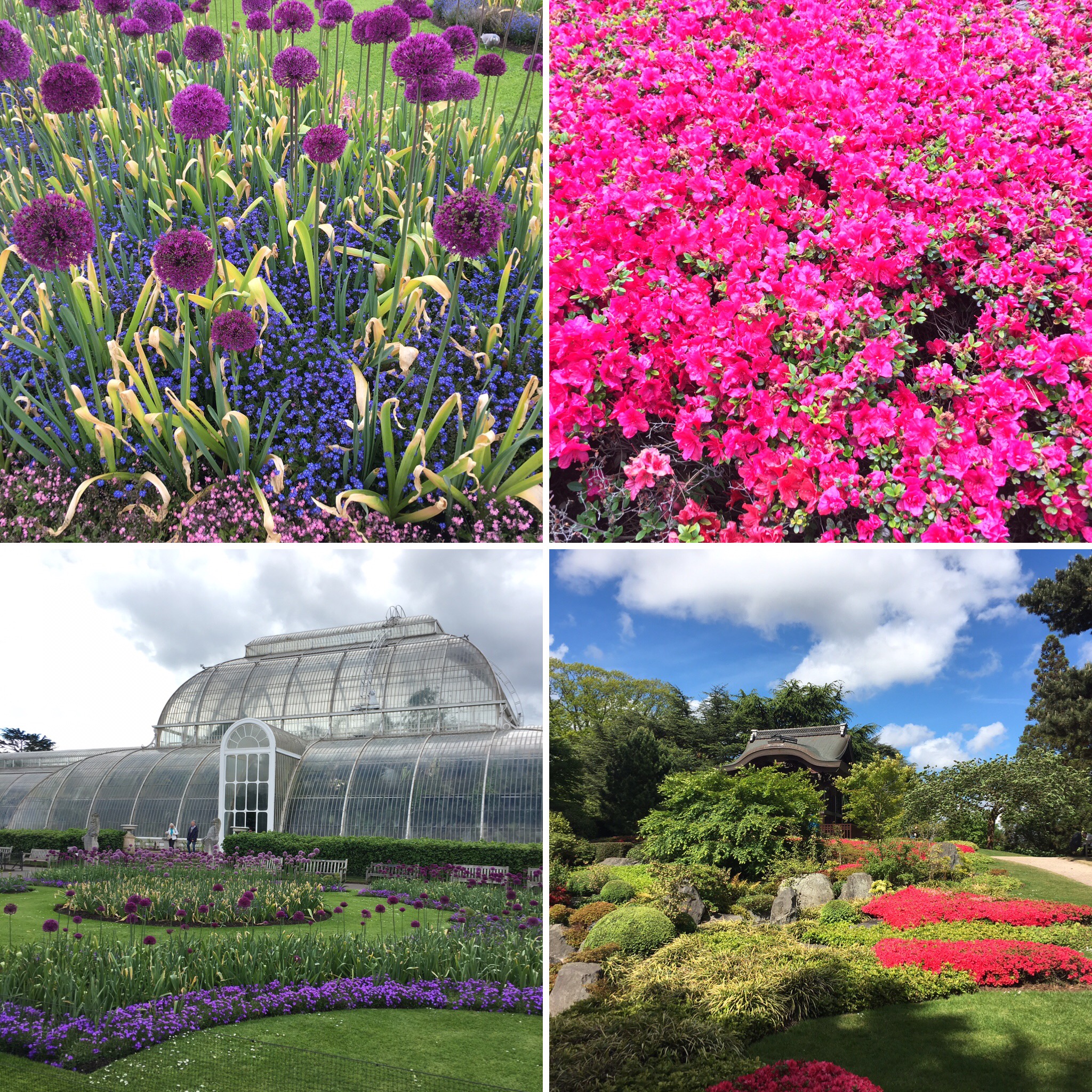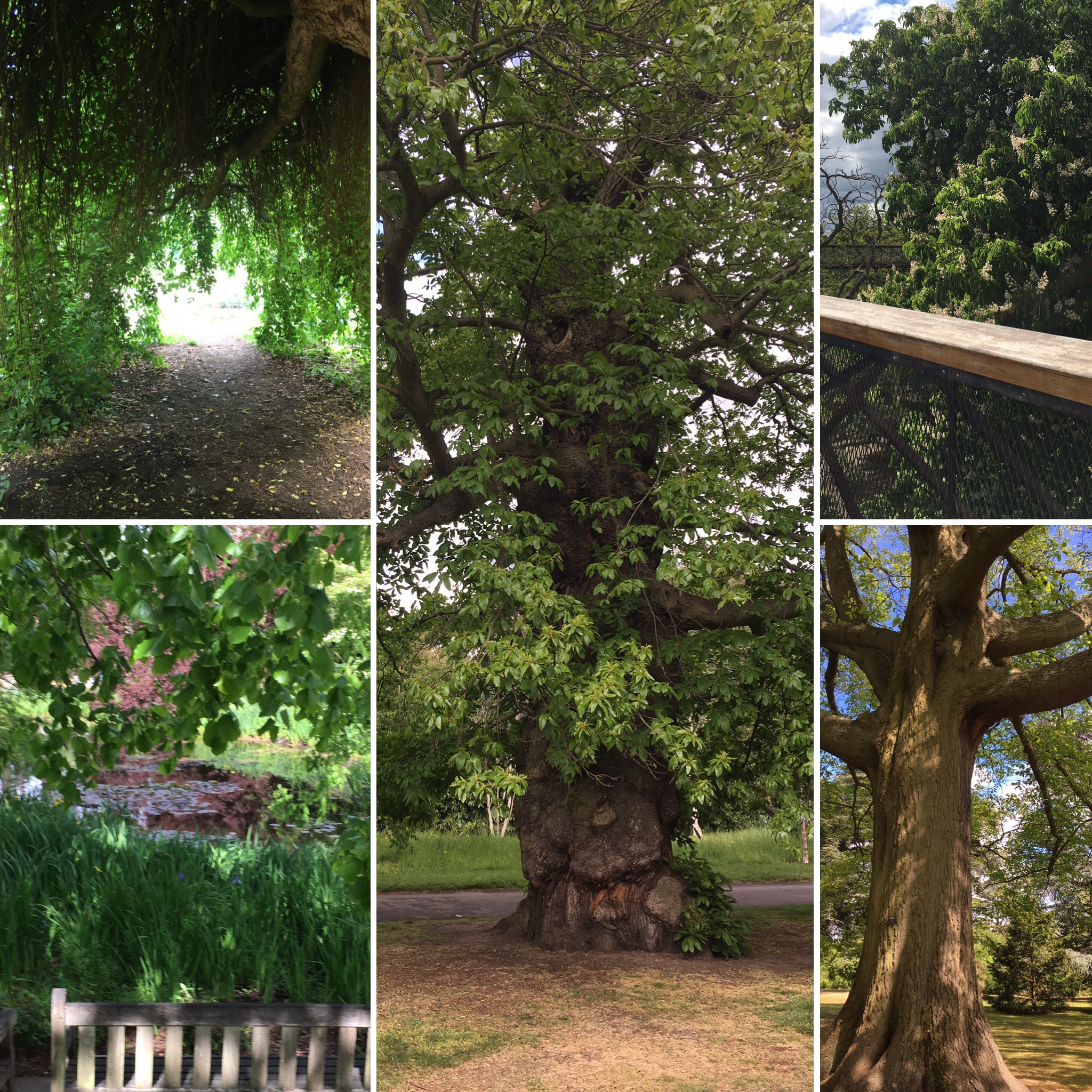Here are some of the displays and views I captured on film, from a recent visit to Kew Gardens, London. The KEW Gardens experience is inspirational – it has led me to discover some interesting research.

Whilst some of the most popular indoor sections of the gardens are currently being refurbished, this did mean there was more time to explore the outdoors.
You may have already guessed I have a fondness for trees.

So, it became a day for some “tree-bathing” – well, that’s a term I recently came across – something which seems to me to be a very natural experience enjoyed by so many for centuries. For example, a walk in the woods and just being close to trees and nature lifts the spirit.
The intermittent showers of rain, interspersed with sunshine contributed to making this a refreshing and happy day out with my daughters (their treat to me – a surprise and a change from a shopping trip – the latter being something I also enjoy and not to be entirely dismissed, of course).
On returning home, I was interested to find out a bit more about ‘Forest bathing’ – the practice of taking a short, leisurely visit to a forest for health benefits which is apparently a recognized relaxation and/or stress management activity in Japan. There is increasing interest elsewhere and there is some interesting science behind this as well.
Moreover, I was curious to find out more about KEW. I also discovered some fascinating collaborative research and a 2017 KEW report providing a world perspective of plant-life.
“A detailed knowledge of plants is fundamental to human life on Earth. Plants underpin all aspects of our everyday life — from the food that we eat, to the clothes that we wear, the materials we use, the air we breathe, the medicines we take and much more. These essential services provided by plants are far too often taken for granted. This is the second annual report in which we have scrutinised databases, published literature, policy documents, reports and satellite imagery to provide a synthesis of current knowledge on the world’s plants.” Click here for the full report.
We should always be curious – you never know what you might discover…
Dr Julie Charlesworth 25/06/2017

